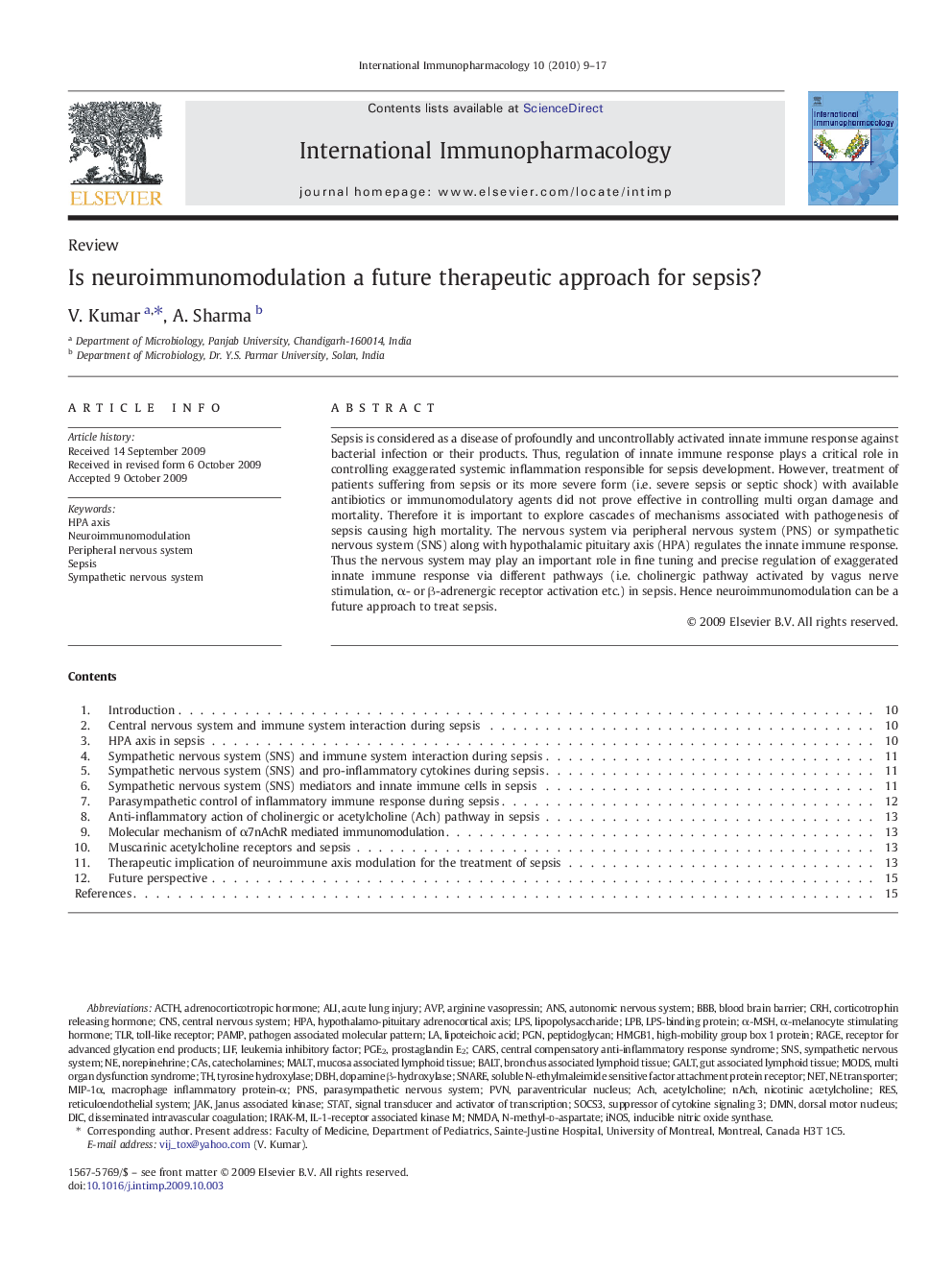| Article ID | Journal | Published Year | Pages | File Type |
|---|---|---|---|---|
| 2541238 | International Immunopharmacology | 2010 | 9 Pages |
Sepsis is considered as a disease of profoundly and uncontrollably activated innate immune response against bacterial infection or their products. Thus, regulation of innate immune response plays a critical role in controlling exaggerated systemic inflammation responsible for sepsis development. However, treatment of patients suffering from sepsis or its more severe form (i.e. severe sepsis or septic shock) with available antibiotics or immunomodulatory agents did not prove effective in controlling multi organ damage and mortality. Therefore it is important to explore cascades of mechanisms associated with pathogenesis of sepsis causing high mortality. The nervous system via peripheral nervous system (PNS) or sympathetic nervous system (SNS) along with hypothalamic pituitary axis (HPA) regulates the innate immune response. Thus the nervous system may play an important role in fine tuning and precise regulation of exaggerated innate immune response via different pathways (i.e. cholinergic pathway activated by vagus nerve stimulation, α- or β-adrenergic receptor activation etc.) in sepsis. Hence neuroimmunomodulation can be a future approach to treat sepsis.
